Biden, Xi Discuss How To 'Align' Stances On Iran Nuclear Talks

US President Joe Biden and China's Xi Jinping discussed harmonizing their positions ahead of the Nov. 29 Iran nuclear talks, a top US official said on Tuesday.

US President Joe Biden and China's Xi Jinping discussed harmonizing their positions ahead of the Nov. 29 Iran nuclear talks, a top US official said on Tuesday.
Officials from Iran and the six nations that struck the pact - Britain, China, France, Germany, Russia and the United States - will meet in Vienna to see if Tehran and Washington can agree to resume compliance with the deal under which Iran curbed its nuclear program to gain relief from US, EU and UN sanctions.
In 2018 then-President Donald Trump withdrew the United States from the pact among the major powers and Iran restoring harsh US sanctions, prompting Tehran to begin violating its nuclear restrictions about a year later.
"The two presidents had the chance to talk about how we can align our perspectives heading into that meeting so that the P5+1 is united in dealing with Iran and trying to pave the way for a return to the (deal)," White House National Security Adviser Jake Sullivan said in a virtual think tank appearance.
While China favors reviving the agreement, it has tended to place the onus on the United States, rather than Iran, blaming Washington for having abandoned the deal and giving Tehran an economic lifeline by buying Iranian oil despite US sanctions.
Report by Reuters
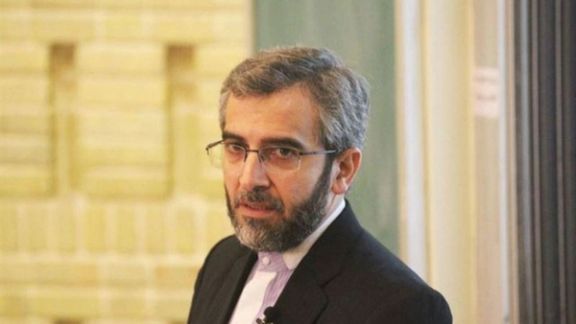
China’s foreign ministry has announced that it held a meeting on Monday with Russian and Iranian diplomats over nuclear talks scheduled to resume in Vienna.
The statement on Tuesday said that Vice Foreign Minister Ma Zhaoxu held a video conference with Russian Deputy Foreign Minister Sergei Ryabkov and Iranian Deputy Foreign Minister Ali Bagheri-Kani.
“The three sides exchanged in-depth views on the Iranian nuclear issue and reached broad consensus. China, Russia and Iran will continue to strengthen coordination and cooperation, ensure that the talks on resuming compliance with the Joint Comprehensive Plan of Action are on the right track, and strive for positive results as soon as possible,” the statement said, without providing any further details.
The Vienna talks suspended by Iran in June are set to resume in less than two weeks, with Iran presenting a much tougher posture, demanding all US sanctions to be lifted at once and also guarantees that no future US administration would withdraw from an agreement.
Six rounds of talks from April to June were focused on how the Joint Comprehensive Plan of Action (JCPOA) could be restored, including which US sanctions would be lifted and the sequence of mutual steps in reviving the agreement.
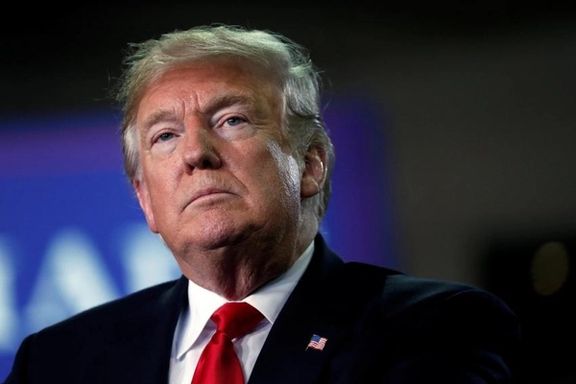
The latest book about the Trump presidency has a vivid moment when Christopher Miller, acting defense secretary, dissuades the president from attacking Iran by acting like a “f***** madman.”
Jonathan Karl’s Betrayal: The Final Act of the Trump Show, released today, describes a November 12, 2020 meeting, shortly after the disputed November 3 election, when Miller talked through with Trump and top officials a response to an International Atomic Energy Agency report. The IAEA warned that Iran had increased its stockpile of enriched uranium to the point where it could make enough weapons-grade uranium for two bombs within six months.
Trump turned to Miller, according to Karl’s book, and asked if Iran’s nuclear sites could be taken out from the air. "Yes, Mr President," replied Miller. "We can absolutely do that."
But 100 manned flights would be needed, given Iran’s air defense, and “three, four or six planes” would probably be shot down, Miller told Trump. “I just want to make sure you are comfortable with that.” Trump was worried about things going wrong, especially Boeing’s involvement in air-to-air refueling as “they can't build s**t anymore."
Miller’s tactic worked. An alarmed Mike Pompeo, the secretary of state, phoned Bill Barr, the attorney general, to get him onside.
"I would play the f***ing madman," Miller told Karl. "And everybody else would be like, ‘All right, he’s the new guy. He's fucking insane…I have found oftentimes with provocative people, if you get more provocative than them, they then have to dial it down.”
The Trump emerging in Karl’s account is unpredictable and ignorant – but a man consistently skeptical of force and committed to withdrawing US troops from foreign theaters, an aim more common among the left of the Democratic Party than amid right-wing Republicans.
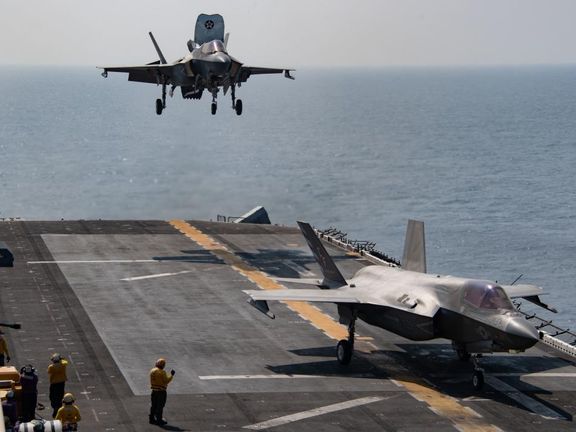
The writing had been on the wall for at least a year. Trump had in 2018 withdrawn from the 2015 Iranian nuclear deal and imposed ‘maximum pressure’ sanctions that he and apparently Pompeo believed would force Iran into broad concessions over its missile and nuclear programs and to curb its regional alliances.
Ten minutes to go
But did Trump have a plan B? A long piece in the New York Times in September 2019 highlighted Trump’s June 20 decision not to retaliate against Iran for shooting down a US surveillance drone. With ships aiming Tomahawk missiles, jets in the sky, and 10,000 sailors and airmen mobilized, Trump called of strikes with ten minutes to go after being told 150 Iranians would die.
The Times argued that the “about-face, so typically impulsive, instinctive and removed from any process” was a turning point in Trump’s presidency, one that
“was taken by Iran as a sign of weakness, emboldening it to attack” Saudi oil facilities at Buqaiq and Khurais in September 2019.
Trump’s response to the Buqaiq-Khurais attack – in which Iran denied involvement – was just to tighten financial sanctions.
But the Times even before that attack had noted that “as eager as he is to fight with 280 characters on Twitter, Mr Trump has proved profoundly reluctant to fight with live ammunition on a real battlefield.” The paper highlighted the influence on Trump of Fox News, especially presenter Tucker Carlson, always keen to remind the president he had been elected to stop wars, not start them.
Not ready to respond
In a meeting in Congress over the drone shooting down, Trump, according the NYT piece, “rambled on about how bad Mr Obama’s deal [the 2015 nuclear agreement] had been and insisted over and over again …that his pressure campaign would force Iran to the bargaining table. He seemed less certain about what to do in response to the drone shootdown.”
The picture emerging from Karl’s Betrayal: The Final Act of the Trump Show confirms the NYT portrayal. Trump essentially repeated a mistake made by Barak Obama in failing to act in 2013 when President Bashar al-Assad apparently crossed a “red line” set by Obama over the use of chemical weapons.
In that sense, Miller’s “f***ing madman” act had more sense than the president’s responses. “Trump is in a box of his own making,” Philip Gordon, a Middle East adviser to Obama, told the Times in 2019. “He has put in place policies…guaranteed to provoke an aggressive Iranian response, but he’s not prepared to respond aggressively in turn, and the Iranians know it.”
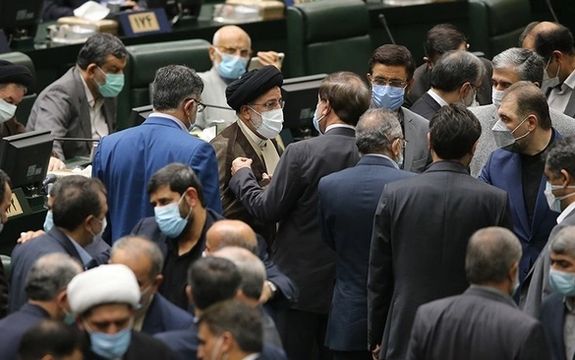
Politicians and commentators in Iran express doubt if the upcoming nuclear talks can succeed, and some voice anxiety about the worsening economic crisis.
Ezzatollah Yousefian Molla, a hardline conservative lawmaker at the Iranian parliament (Majles), said on November 15 that there is no hope in the successful continuation of the nuclear talks.
Yousefian called on Iran's President Ebrahim Raisi to be honest with the people and tell them that he does not believe in negotiations. Meanwhile, like many other conservative lawmakers and reformist figures in Iran, he charged that Raisi and the parliament have no plan whatsoever for running the affairs of the state.
Yousefian further said that Raisi should tell the people that the country's economic situation might get even worse because “we do not want to negotiate with the West.”
"They keep telling we want to negotiate, but in 2 to 3 months from now. However, they have been saying this for 3 to 4 months now," Yousefian said. "They should tell the people honestly about their plan for negotiations. They should tell them how far the government is ready to compromise and give concessions," he added.
Iran’s economic crisis deepens by every passing day and some politicians feel they must be on the record for having warned the government.
Yousefian went on to cast doubt on the commitment of Iran’s negotiators to the concept of an agreement with the West. He argued that members of president Raisi’s foreign policy team have been telling the people for a long time that they do not believe in negotiations. “They have said the JCPOA should be laid to rest.”
Yousefian charged that the current negotiating team does not even clearly know whether they want to talk about the JCPOA or they would go further and address other issues. "Even the cabinet ministers do not know that. When they came to the Majles they even did not know each other," he said.
Meanwhile, a prominent hardline lawmaker called on Europe to stand by its commitments under the JCPOA. Mohsen Zanganeh the chairman of the Second Step of the Revolution fraction in the Majles said Europe should not wait for Iran to return to its commitments first. He said the agreement now works the other way around: First others should return to their commitments under the nuclear deal and then Iran will take reciprocal action. Zanganeh further called on Iran's negotiators to stand firm on their positions.
In another development, foreign policy analyst Amir Ali Abolfath told reporters in Tehran that "like former presidents Hassan Rouhani, Mahmoud Ahmadinejad and Mohammad Khatami, President Ebrahim Raisi also wishes to solve Iran's problems by negotiating with the West, although there is no bright prospect for the upcoming negotiations."
To reflect the apparent anxiety within the political elite, a well-known conservative professor of economics in Tehran University and a politician, Mohammad Khoshchehreh, said in an interview on Tuesday that Raisi’s government does not have the luxury of failure and will not get a second chance to solve Iran’s economic crisis. He warned that without a clear economic plan for success, not only the government will fail but the Islamic Republic might face danger.
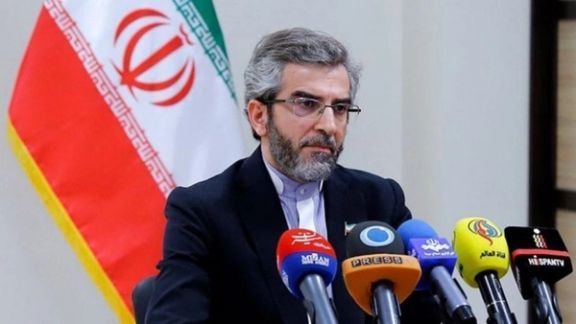
Some Iranian analysts across the country's political spectrum suggest that Tehran should step down from its hardline positions in a bid to forge a nuclear deal.
During the past week, an increasing number of analysts and political commentators in Iran have pointed out that some of Tehran's expectations including the lifting of all sanctions and demanding guarantees of a permanent US commitment to the Joint Comprehensive Plan of Action (JCPOA) might be farfetched.
It is not yet clear whether they are urging the government to make life easier for Iranians or it is the government that directs the commentators to make remarks politicians might want to use to justify a dramatic change in their positions once nuclear talks resume at the end of November.
Hardline analyst Mehdi Poursafa wrote in a commentary published by IRGC-linked Fars news agency on November 14 that "Negotiations only aiming at lifting the sanctions will not bear any particular fruit when looked at from a legal standpoint." He suggested that "instead, Iran should make sure that it has some verifiable financial gains."
Safapour argued that the United States has regularly awarded exemptions to Iran sanctions, allowing limited oil exports and natural gas sales. He implied that the same approach could apply to some of the current sanctions in the future.
It appears that analysts like Safapour would be happy with such exemptions. He also mentioned the example of US exemptions about trade with China regardless of sanctions imposed in the 1980s following the Tiananmen Square atrocities.
The biggest advantage Iranian negotiators can gain in the next round of negotiations with the West is "a framework that enables Iran to benefit from trade deals with the West", Safapour maintained, regardless of formal commitments.
Meanwhile, moderate conservative Khabar Online summarized debates on Clubhouse among Iranian analystsabout the same matter. Hassan Lasjerdi, one of the editors of the website said that negotiators from all sides normally brag about their expectations during the weeks before talks begin. He said most of the preconditions, including lifting all the sanctions before negotiations start are not achievable. Lasjerdi said he was sure negotiators' remarks will become more reasonable once the talks start.
Mehrdad Pashangpour, a political analyst also opined that the call for the lifting all the sanctions against Iran is "a good political bluff."
Political activist Hadi Mousavi said individuals around former nuclear negotiator Saeed Jalili, including Bagheri, have begun thinking that the nuclear issue is not the main topic of the upcoming talks. It is a pretext based on which other matters could be discussed between Iran and the West.
He argued that the United States gave as many concessions to Iran as it could during the previous rounds of talks and now it is Iran that should be ready to give concessions. As a matter of fact, Mousavi said, because of opposition to the JCPOA in the US Senate, America might even take back some of the concessions it had previously offered.
Mohammad Mohajeri, another editor at Khabar online said that Zarif and his team were against the December 2020 legislation that called for the reduction of Iran's commitments under the JCPOA while hardliners at the time supported the bill. Mohajeri said that now the hardliners have also realized that the legislation is not in Iran's best interest, and it is likely to be overturned overnight with a decree from the Supreme Council of National Security.

Iran’s foreign ministry on Monday implicitly confirmed recent claims that Tehran has accessed some of its frozen funds abroad but it refused to provide details.
Last week, the CEO of the government’s news agency IRNA and a newspaper affiliated with the Revolutionary Guard claimed Iran had freed $3.5-4 billion dollars of its frozen funds but did not say which country unblocked the assets.
Foreign ministry spokesman Saeed Khatibzadeh was asked by reporters on Monday to comment on the issue. He replied: “Amid sanctions, we do not provide details to anyone. The central bank might comment if it sees fit.”
He added, “We have had many sources abroad and you know that we have been gradually freeing these assets that enter our economy. The fact that we are importing merchandise shows that these resources gradually return to the country, and it is not just from one source. Allow me to say just that much.”
Khatibzadeh’s comments were vague enough to cover a lot of possibilities. In advance of nuclear talks scheduled to resume in two weeks, Iran might be trying to show a full hand by claiming not to be in a dire financial situation. It is also possible that the claim is based on recouping payments from some current illicit oil exports and not necessarily funds officially frozen by other countries, such as South Korea and Iraq.
Khatibzadeh also announced that Rafael Grossi, the head of the International Atomic Energy Agency (IAEA), Rafael Grossi, has been invited to visit Iran and the foreign ministry has proposed a date and is waiting to hear back from him. However, this contradicts comments by Grossi who expressed his disappointment on November 12 at having no contact with the Iranian government.
Grossi told reporters it is “astonishing” that “I have not had any contact with this government” that has been in office for five months, except “technical” conversations with the head of Iran’s atomic energy agency.
Iran has curtailed IAEA’s monitoring access to its nuclear facilities since the beginning of the year, demanding that the United States should lift sanctions imposed since 2018.
Khatibzadeh’s comment about Iran having extended an invitation to Grossi comes days before the IAEA Board of Governors is scheduled to meet in Vienna where Grossi could criticize Tehran for lack of cooperation.
The Iranian spokesman insisted that “technical” interactions with IAEA are “in a good path” and we are waiting for Grossi’s response. If he travels to Iran, he will meet with foreign minister Hossein Amir-Abdollahian. Grossi had complained in October that he had had no meeting with the new foreign minister.